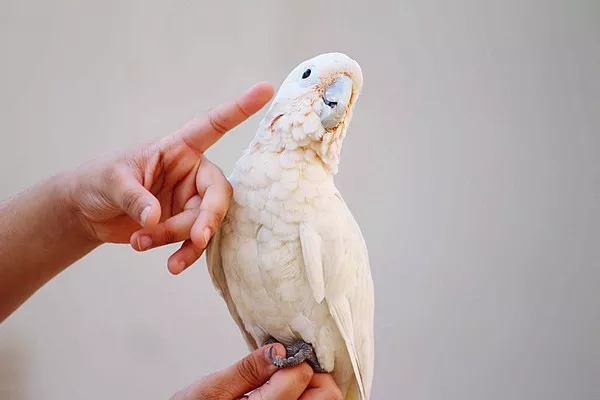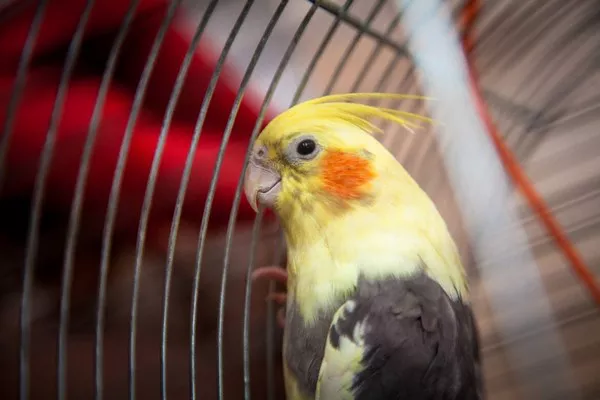Sun conures, known for their vibrant colors, intelligent personalities, and social nature, are one of the most popular pet bird species. If you’re considering adopting a sun conure, one of the most common questions you may have is whether sun conures scream a lot. Understanding a sun conure’s behavior, communication styles, and the reasons behind their vocalizations will help you better prepare for life with this delightful, energetic pet.
In this article, we’ll explore the sun conure’s vocal behavior, why they scream, how to manage it, and what you can do to reduce excessive noise. We’ll also discuss their other characteristics and needs to provide you with a complete picture of what it means to live with a sun conure.
What Is a Sun Conure?
Sun conures (Aratinga solstitialis) are small to medium-sized parrots native to South America, particularly in the northeastern regions of Brazil. They are famous for their striking plumage, which features bright yellows, oranges, and greens. These birds typically grow to about 12 inches (30 cm) in length and have a wingspan of about 18 inches (45 cm).
Like most parrots, sun conures are intelligent, curious, and highly social creatures. In the wild, they are often seen in flocks, where they engage in mutual grooming, playful activities, and vocalizations. Their social nature makes them excellent companions for pet owners who can provide them with plenty of attention and interaction.
Understanding Vocalizations in Sun Conures
Sun conures, like many parrots, communicate primarily through vocalizations. These vocalizations can range from soft chirps and whistles to loud squawks and screams. Unlike other pet birds that may be more reserved, sun conures are known for their loud and frequent calls. However, understanding why they make noise and what it means can help alleviate any concerns about their volume.
There are several reasons why a sun conure may scream, and it’s important to distinguish between normal behavior and excessive or problematic noise. Let’s break down the key factors that influence their vocalizations.
1. Communication with Owners
Sun conures are highly social birds and thrive on interaction with their owners. When they scream or vocalize loudly, they are often trying to get your attention. Whether they are trying to let you know they are hungry, excited, or want to play, screaming is one way they communicate their needs or desires.
For example, if your sun conure is calling out while you are in another room, they may be expressing loneliness or simply wanting to engage with you. Sun conures are known to develop strong bonds with their human families, and they will vocalize to ensure they stay connected to you.
2. Expressing Excitement or Happiness
Sometimes, sun conures scream when they are feeling particularly excited or happy. These birds are naturally energetic and playful, and loud vocalizations can be a sign that they are enjoying their environment. For instance, they may squawk enthusiastically when they see you, when you bring them a new toy, or when they are playing with their favorite object.
If you’ve recently introduced a new activity or stimulus into their environment, such as a new playmate, a new cage, or a new treat, they may vocalize loudly as a way of expressing their delight and enthusiasm.
3. Responding to Environmental Stimuli
Sun conures are highly attuned to their environment and can react vocally to changes around them. For instance, they may scream in response to loud noises, sudden movements, or the presence of other animals or people. If they are startled or feel threatened by something, they may emit a loud shriek as a defensive reaction.
This behavior is more common in sun conures that are not accustomed to sudden changes or if they feel their territory is being invaded. They may also scream if they are trying to warn their flock or human companions about a perceived danger.
4. Seeking Attention
As social animals, sun conures can become bored or lonely if they are left alone for extended periods. In such cases, they may scream as a way of seeking attention. If they are not receiving the interaction and stimulation they need, they may resort to loud vocalizations to get your attention.
While it’s natural for sun conures to seek attention, it’s important to recognize that attention-seeking behavior, if not properly managed, can lead to excessive screaming. This is why it’s crucial to ensure that you are meeting your sun conure’s social and physical needs, such as providing enough playtime, companionship, and mental stimulation.
5. Medical or Physical Discomfort
Although sun conures are generally healthy birds, they can sometimes scream when they are in pain or discomfort. If your bird is injured, unwell, or experiencing stress, they may express their distress through louder vocalizations. In such cases, it is important to monitor your bird’s behavior for signs of illness, such as changes in appetite, energy levels, or physical appearance.
If you suspect that your sun conure is screaming due to a medical issue, it’s always a good idea to consult with a veterinarian specializing in avian care to rule out any health concerns.
How Loud Are Sun Conures?
Sun conures are known for being one of the louder parrot species. Their vocalizations can be heard from a considerable distance, and they are capable of producing very loud squawks and screeches, especially when excited or agitated.
The noise level of a sun conure can vary depending on its individual personality and environment. Some sun conures are naturally quieter, while others are more vocal. On average, their vocalizations can range from 80 to 100 decibels (dB), which is similar to the noise level of a lawnmower or a jackhammer. This means that if you live in an apartment or a neighborhood with close neighbors, the noise from a sun conure could potentially become a source of disturbance.
It’s important to consider the environment in which you plan to keep your sun conure. While they are great companions, their noise level may not be suitable for everyone, particularly in small or densely populated living spaces.
Can Sun Conures Be Trained to Reduce Screaming?
Yes, sun conures can be trained to reduce excessive screaming. However, like all parrots, training a sun conure requires patience, consistency, and a positive approach. Here are a few strategies to help manage and reduce your sun conure’s screaming:
1. Positive Reinforcement
One of the most effective ways to train your sun conure to reduce screaming is through positive reinforcement. When your bird is quiet, reward them with treats, praise, or attention. Over time, your sun conure will associate quiet behavior with positive outcomes and may begin to reduce their vocalizations.
On the other hand, avoid rewarding loud or excessive screaming. If your bird is screaming for attention, wait for them to quiet down before responding. By doing this, you teach your bird that calm behavior leads to rewards, while excessive noise does not.
2. Provide Enough Social Interaction
Since sun conures are highly social birds, ensuring that they get plenty of social interaction is key to minimizing screaming. Spend time with your bird every day, talking to them, playing with them, and providing mental stimulation through toys and puzzles. The more attention and interaction you provide, the less likely your sun conure will resort to screaming to get your attention.
3. Create a Stimulating Environment
Boredom is a major cause of excessive screaming in sun conures. A bird that is not engaged or mentally stimulated may start screaming out of frustration. To prevent this, make sure your sun conure’s environment is enriched with toys, perches, swings, and other forms of entertainment. Rotate toys regularly to keep things interesting and ensure your bird has enough space to move around.
4. Address Medical Issues
As mentioned earlier, loud vocalizations can sometimes indicate that your sun conure is in pain or discomfort. If you’ve noticed any changes in your bird’s behavior, such as increased screaming alongside other signs of illness, take them to a veterinarian for an evaluation. Addressing any underlying medical issues can help reduce excessive screaming.
Conclusion
Sun conures are beautiful, intelligent, and highly social birds that can make wonderful pets for the right owner. While they are known for being noisy, their screaming is often a natural part of their behavior and communication style. Understanding why sun conures scream—whether it’s for attention, excitement, or environmental stimuli—can help you manage their vocalizations and ensure a harmonious living situation.
By providing your sun conure with plenty of social interaction, mental stimulation, and positive reinforcement, you can train them to reduce excessive screaming. If their vocalizations become problematic or are accompanied by signs of illness, it’s important to consult with a veterinarian to rule out any health concerns.
With the right care and training, your sun conure can be a joyful, well-behaved companion, and their colorful personality will undoubtedly bring joy to your home.
Related Topics:
























